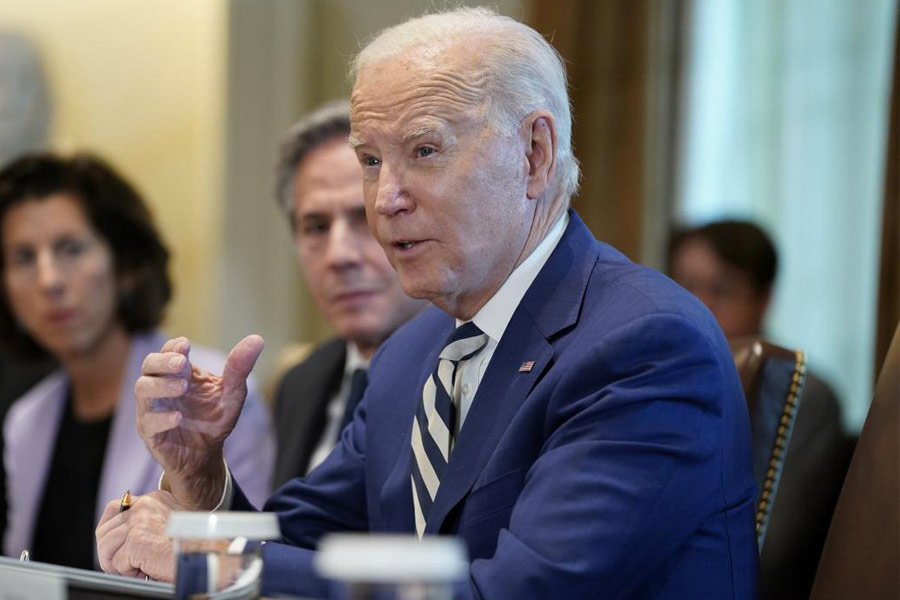A senior Biden administration is heading back to the Middle East on Sunday in hopes of making progress toward an agreement that would result in the release of more hostages held by Hamas in exchange for a pause in Israel’s military campaign in the Gaza Strip, two U.S. officials said.
President Joe Biden’s Middle East coordinator at the White House, Brett McGurk, will travel to Cairo to meet with Gen. Abbas Kamel, chief of Egypt’s General Intelligence Service and widely considered the nation’s second most powerful official, according to the U.S. officials, who spoke on the condition of anonymity because of the sensitivity of diplomatic talks. McGurk will later head to Doha, Qatar, to meet with Prime Minister Sheikh Mohammed bin Abdulrahman Al Thani.
Egyptian and Qatari leaders have been important players in hostage talks and helped broker a cease-fire in November during which Hamas released more than 100 people from captivity.
McGurk’s trip comes as Israeli Prime Minister Benjamin Netanyahu said once again that he would not meet Hamas’ demands of a withdrawal of Israeli forces in return for the release of hostages. “Let it be clear: I utterly reject the Hamas monsters’ capitulation terms,” Netanyahu said in a statement Sunday.
Israeli officials say about 240 people were taken hostage during the Oct. 7 attack on Israel led by Hamas, which also killed about 1,200 people. But divisions have emerged in Israel over the path forward, with some citizens protesting the government’s failure to secure the hostages’ release, including a group that gathered near Netanyahu’s Jerusalem home on Sunday, according to Israeli media. Doubts have also emerged among military leaders that fighting alone could achieve their safe return. Gadi Eisenkot, a former army chief who is serving in the war Cabinet, said in a television interview last week that it was an “illusion” to believe the hostages could be safely secured through military operations.
McGurk’s trip, which was previously reported by Axios, comes just days after Israel and Hamas agreed through Qatari intermediaries to allow medicine to be delivered to hostages in exchange for additional medicine and aid for civilians in Gaza.
But U.S. officials have said a new hostage release has been complicated by Hamas’ evident desire for a permanent cease-fire, rather than the kind of temporary pause that accompanied the releases in November.
Administration officials said the hostages were just one of several topics arising from the Israel-Hamas war that McGurk will address on his travels to the region. Netanyahu has also grown increasingly vocal in pushing back against Biden’s insistence that Israel ultimately negotiate the creation of a Palestinian state in exchange for guarantees of its own security.
Netanyahu publicly rejected the idea again this weekend, after speaking with Biden on Friday about the issue of a two-state solution, saying Sunday that all territory west of the Jordan River must be under “full Israeli security control.”
New York Times News Service











